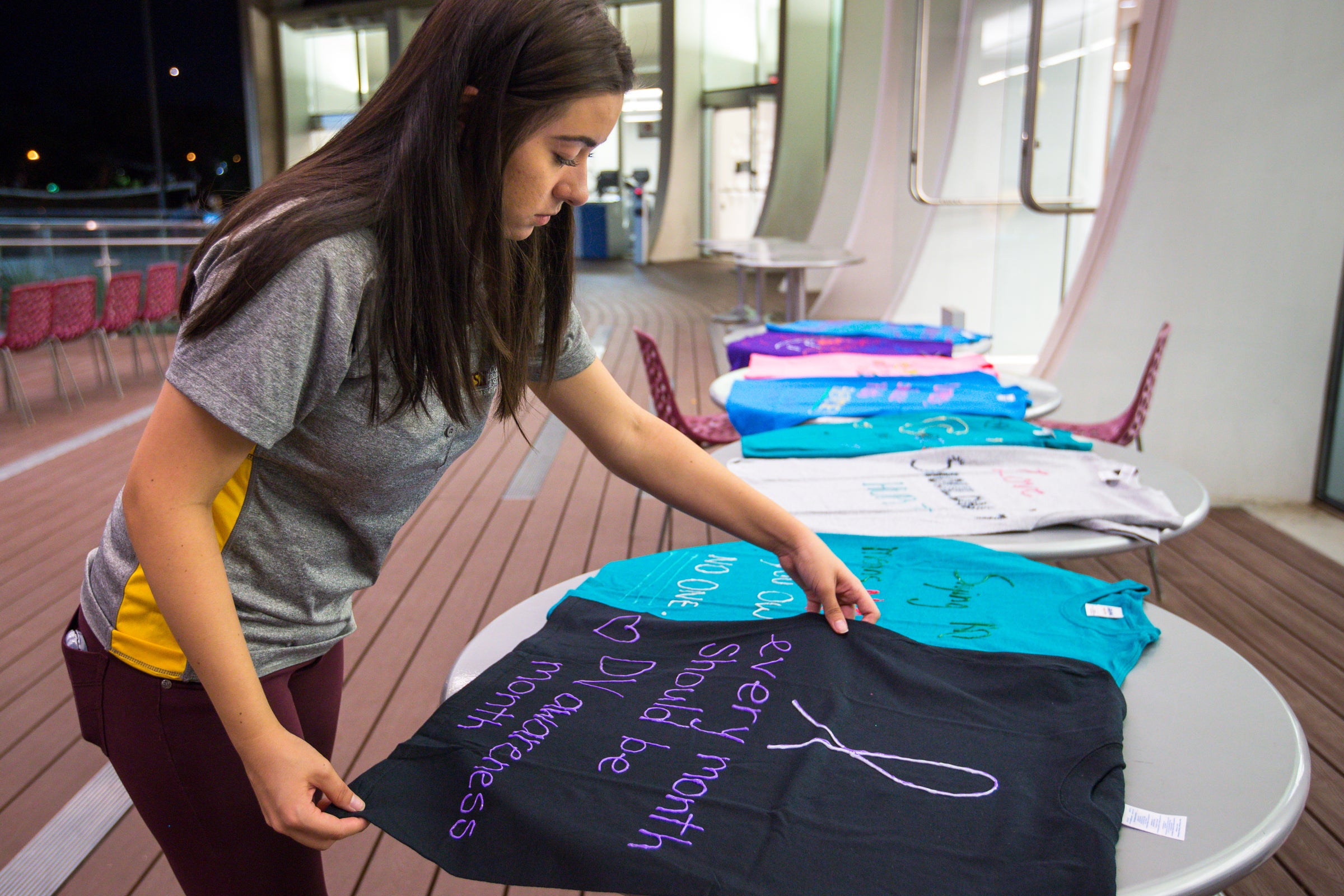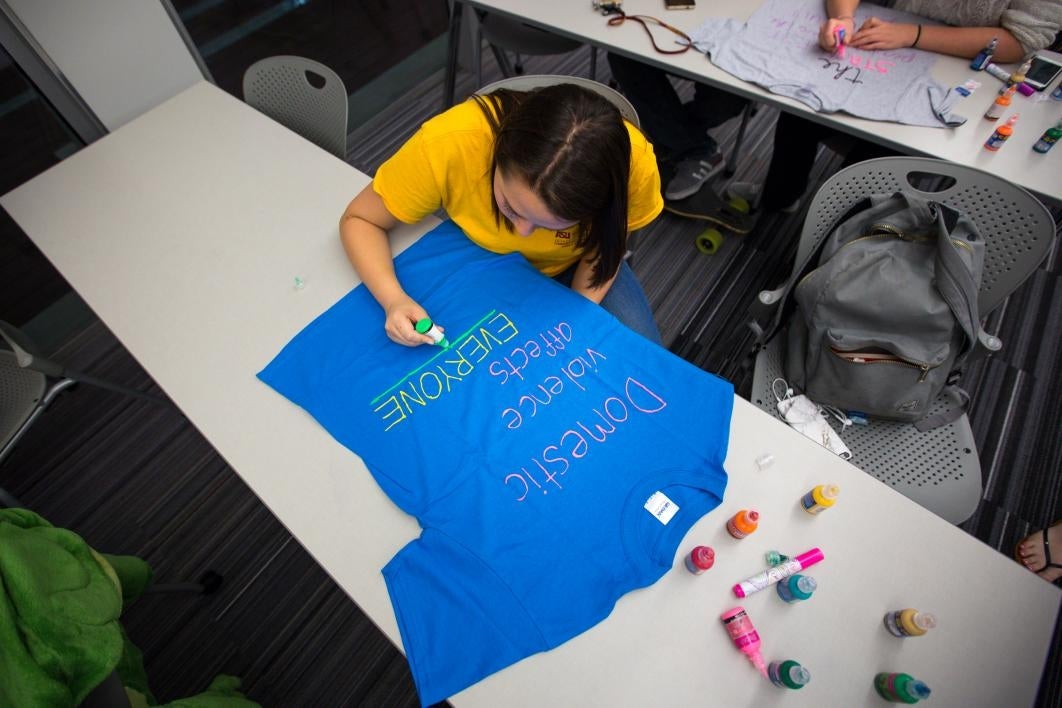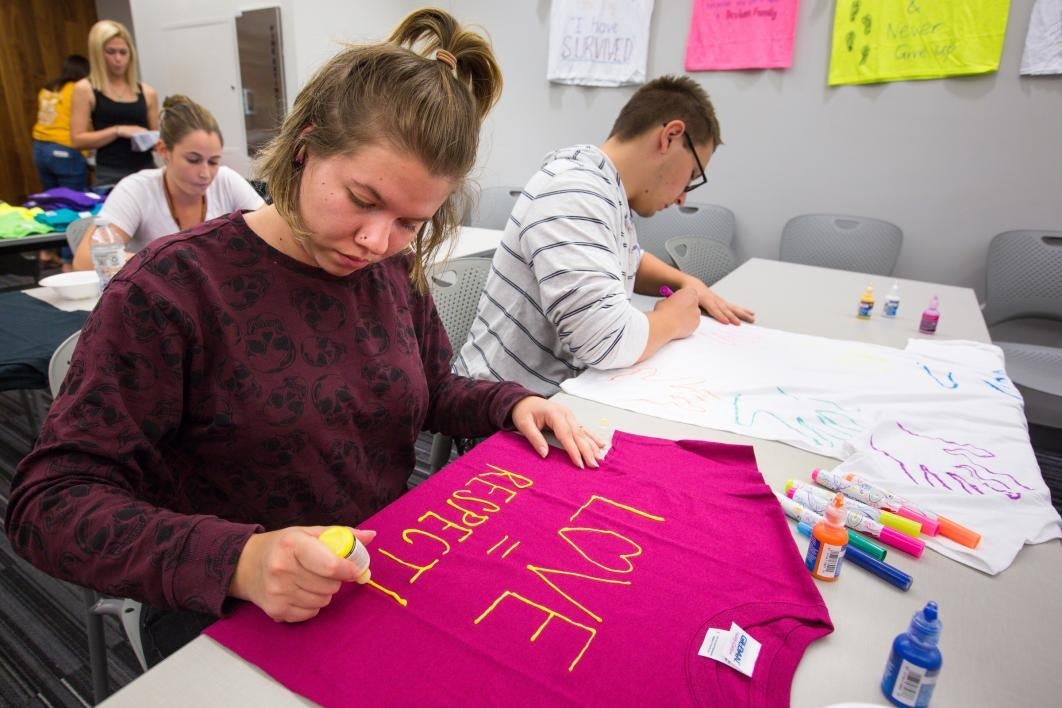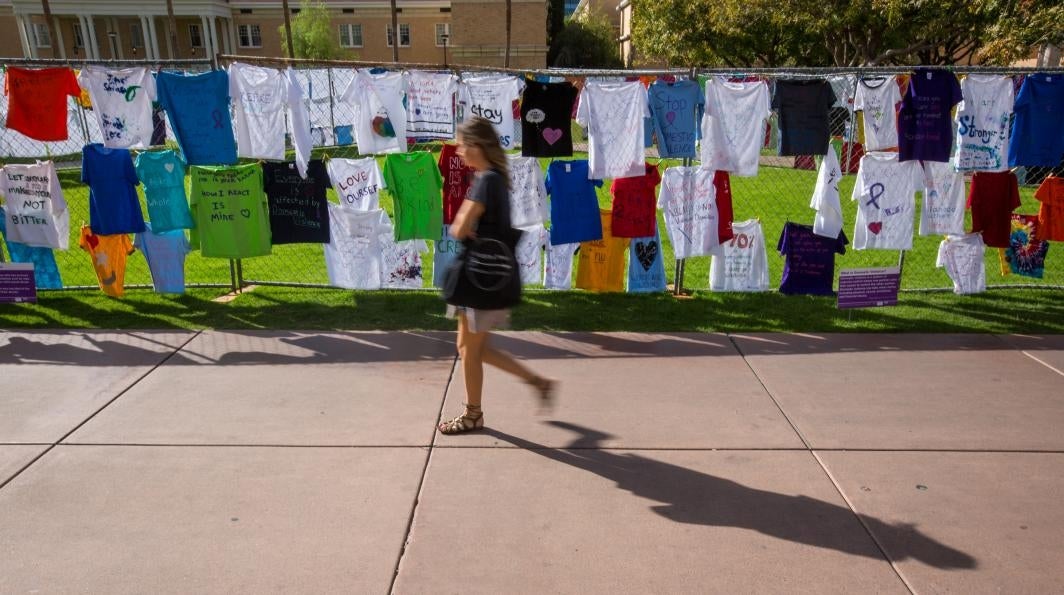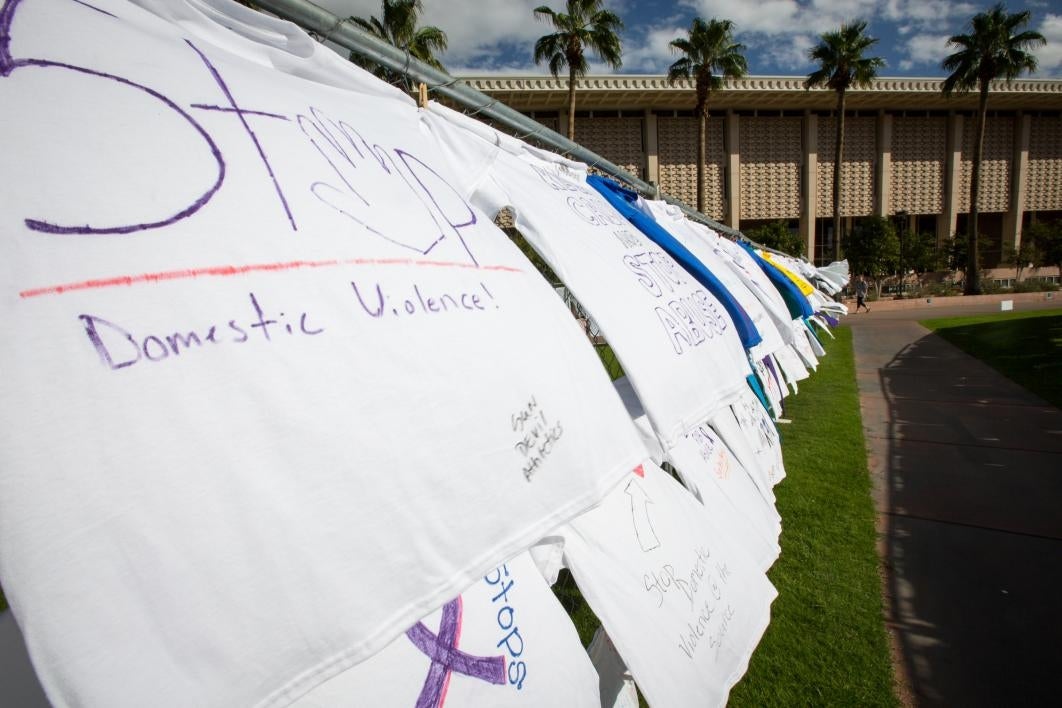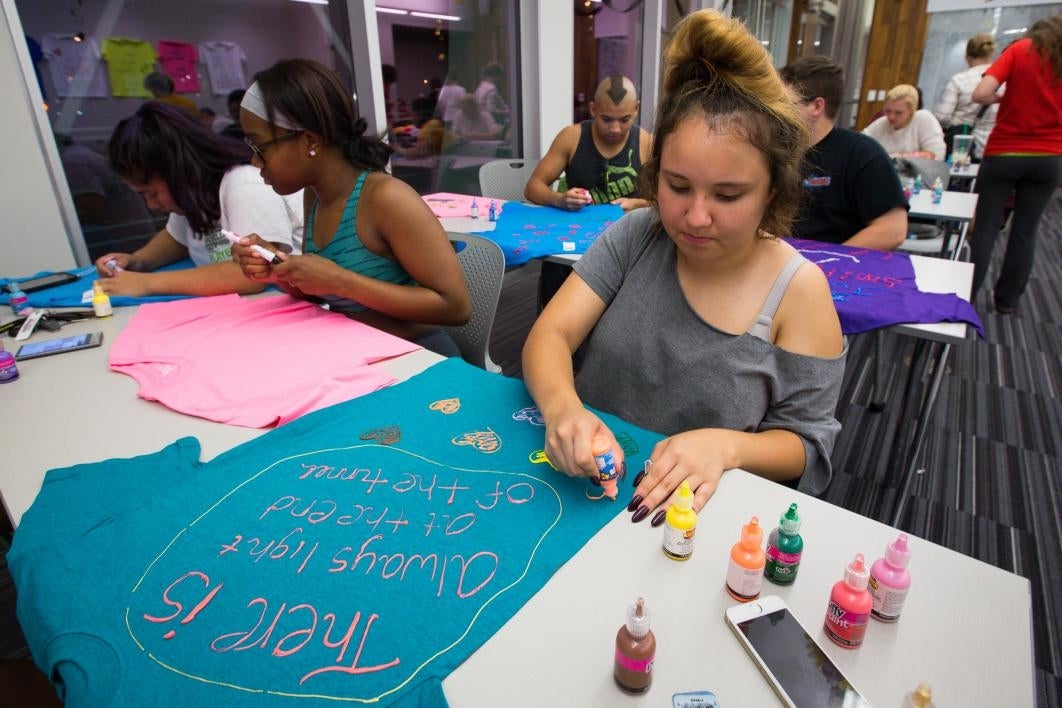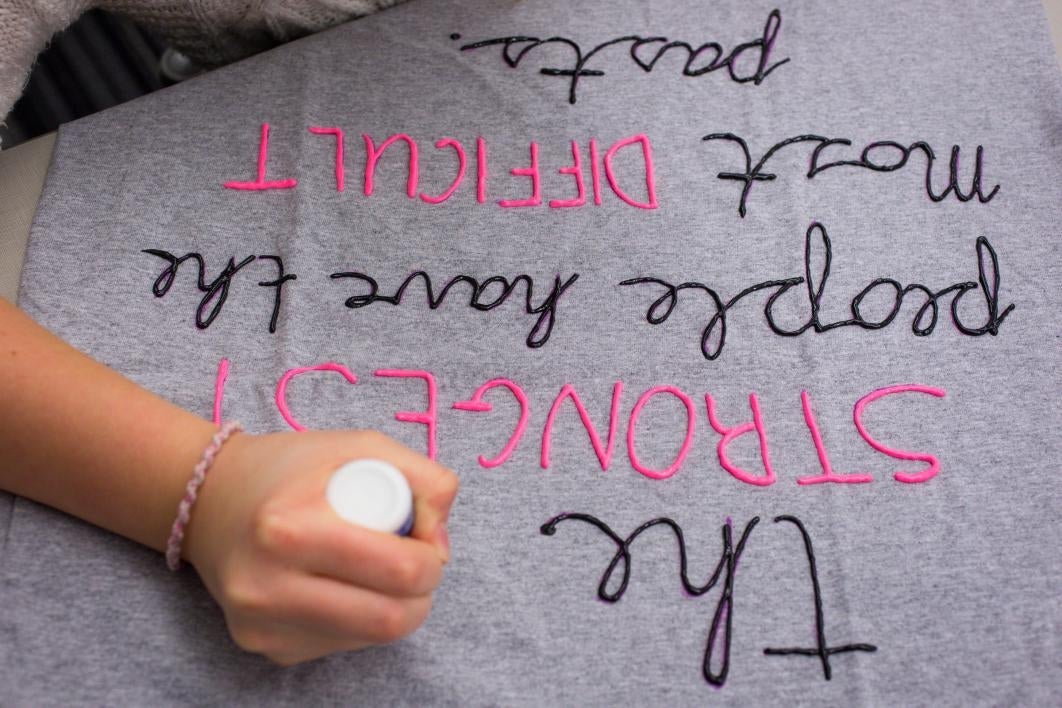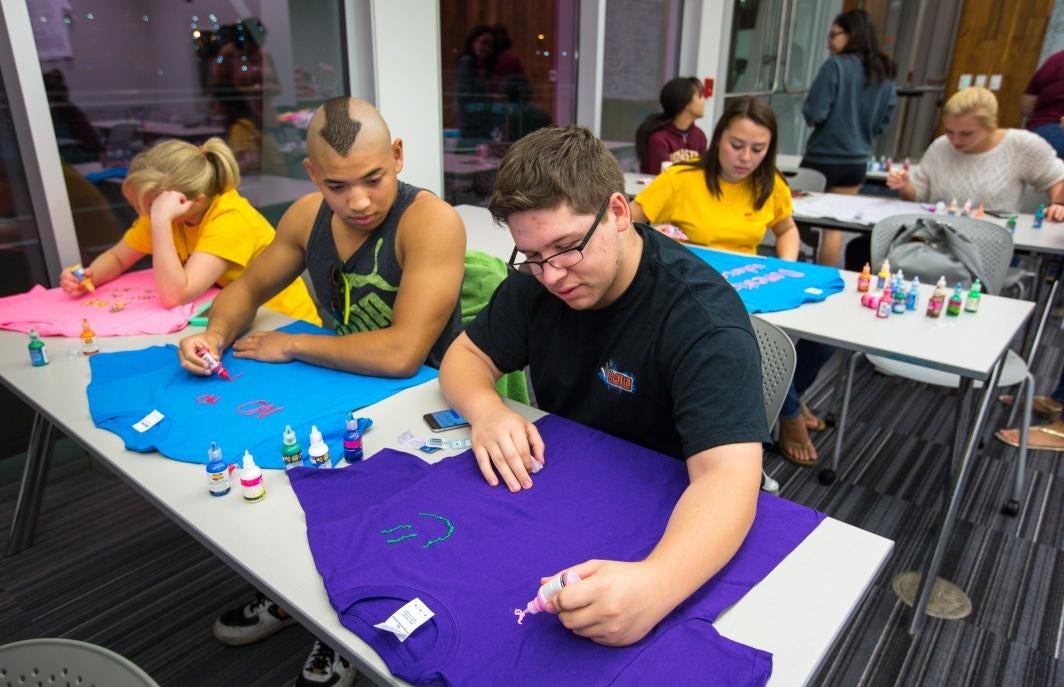A bold display for an often silent topic

When a silver SUV containing a family of five — including three young children — crashed into Tempe Town Lake on Oct. 18, the incident brought national attention to an issue that all too often goes unnoticed.
The entire family drowned, and it was later reported that the father had threatened violence against the mother after she requested court protection from him. Police ruled it a murder-suicide.
“That was definitely an instance of domestic violence,” said Mia Senechal, a political science freshman at Arizona State University, “and I think it’s important for college students to get involved and educate themselves more about it.”
True to her word, Senechal spent the night of Oct. 26 in Manzanita Hall’s multipurpose room, where students were gathered to help spread awareness about sexual and domestic violence through something called the Clothesline Project.

Political science freshman Mia Senechal uses fabric paint to decorate a plain T-shirt Oct. 26.
Photos by Charlie Leight/ASU Now
Strung up on the walls of the room were T-shirts bearing phrases like “No means no” and “Not all scars are visible.”
Moving swiftly from table to table, ensuring everyone had enough paint and shirts was Caitlan Rocha, a community mentor for the residence hall.
A junior justice studies major, Rocha learned of the Clothesline Project during the fall of her sophomore year while taking professor Alesha Durfee’s women and crime course. Durfee, whose research and teaching focus on legal intervention for domestic violence, helps facilitate the project every fall at ASU.
The culmination of the project is a giant display of T-shirts affixed to chain-link fences on ASU's Hayden Lawn, on the Tempe campus, emblazoned with messages to and from survivors of sexual and domestic violence. The shirts come from public and student events like the one at Manzanita Hall.
“The Clothesline Project functions as a visual display of the impact that domestic violence has on survivors, their family and friends, and society as a whole,” said Durfee.
Throughout the month of October — which is National Domestic Violence Awareness Month — Durfee encourages students to do what they can to help out, be it gathering supplies, spreading the word or organizing events where students create T-shirts to be added to the final display.
Caitlan Rocha, justice studies major and community mentor at Manzanita Hall, lays out to dry the T-shirt she decorated for the Clothesline Project.
Rocha said she felt inspired to take Durfee’s suggestions to “the next level.”
“I kind of mimicked my own Clothesline Project within the residence halls,” she said of the event she first organized last fall. It was such a success she decided to do it again this year with the help of other residence-hall community mentors.
“It’s a huge epidemic that we don’t talk enough about. This is about starting that conversation,” Rocha said.
On Oct. 26 in the Manzanita multipurpose room, psychology freshman Alondra Gallegos traced out a large “T” onto the front of an aqua blue shirt with a bottle of pink paint as friend Maritza Dumlao, also a freshman majoring in psychology, lamented the tendency of people to shy away from publicly scrutinizing perpetrators of domestic violence.
“It’s not always covered the way it should be,” she said, referring to several instances involving athletes or celebrities that were brushed under the rug — or worse, apologized for by the victims — in order to maintain their public image.
“I also think it’s important to let people know that it’s OK to speak up,” added Charnea Johnson, an exploratory freshman. “A lot of people who are in an abusive relationship often think that it’s their fault. So I feel like they should know that they can come to people to get help, and that it’s not their fault.”
As the evening came to a close, Rocha took her own T-shirt outside to dry among the others. It read, “Every month should be DV [domestic violence] awareness month.”
The Clothesline Project will be on display Nov. 2 and 3, on Hayden Lawn at ASU’s Tempe campus.


